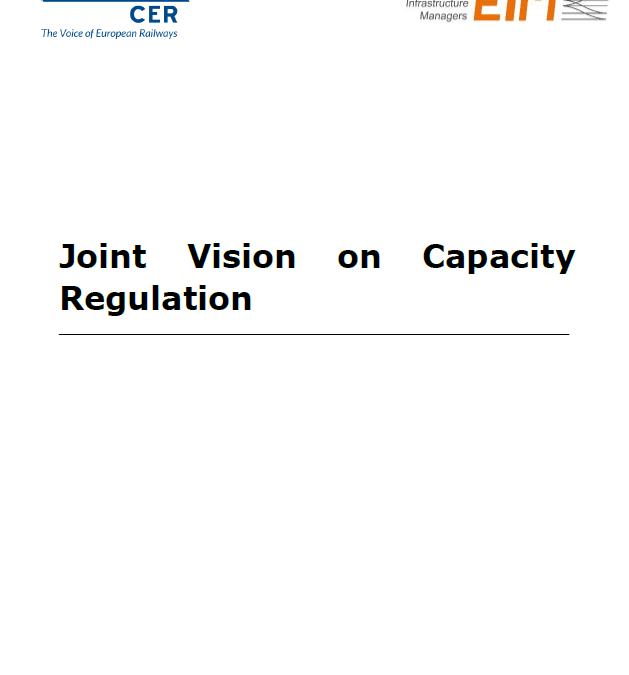Other Publications
The European Rail Sector stakeholders welcome the Proposal for a Regulation of the European Parliament and of the Council on the use of railway infrastructure capacity in the single European railway area (Hereafter “the Regulation”) and appreciate the work done at the level of the co-legislators.
Rail is the most sustainable option for freight and passenger transport with one train emitting nine times less CO₂ emissions and using six times less energy compared to road traffic. The status quo is not an option: rail modal shift has to increase and the international rail system in Europe needs to be adapted to face the challenges of the climate and energy crisis. An interconnected and competitive network of rail freight and passenger services will strengthen the economic, social, and environmental sustainability of Europe. It will drive towards the timely implementation of the EU Green Deal and help meet the targets of the Smart and Sustainable Mobility Strategy, increasing modal shift and strengthening European cohesion by reinforcing connectivity and fair development.
Shifting more freight volumes and people to rail leads to more trains in the future. However, it is no secret that the current rail infrastructure will not be able to meet the increasing demand. The accelerating deadlines foreseen in the TEN-T infrastructure requirements will help in the medium and long-term future, but solutions for a more efficient use of capacity are needed now.
The sector believes that the Regulation is a timely and necessary piece of legislation to optimise the use of existing rail infrastructure, boosting the efficiency of capacity and traffic management and thereby improving the quality of rail services and contributing to the achievement of a Single European Rail Area. It will improve the coordination among Infrastructure Managers (IMs) and Allocation Bodies (ABs), increase dialogue with their customers (Railway Undertakings (RUs) and other Applicants) and other stakeholders, and help drive the establishment and interconnections of relevant digital tools to optimise and implement international processes. Moreover, it will provide the needed flexibility to the freight operators whilst ensuring the necessary predictability to the passenger operators.
Read the full Position Paper :



